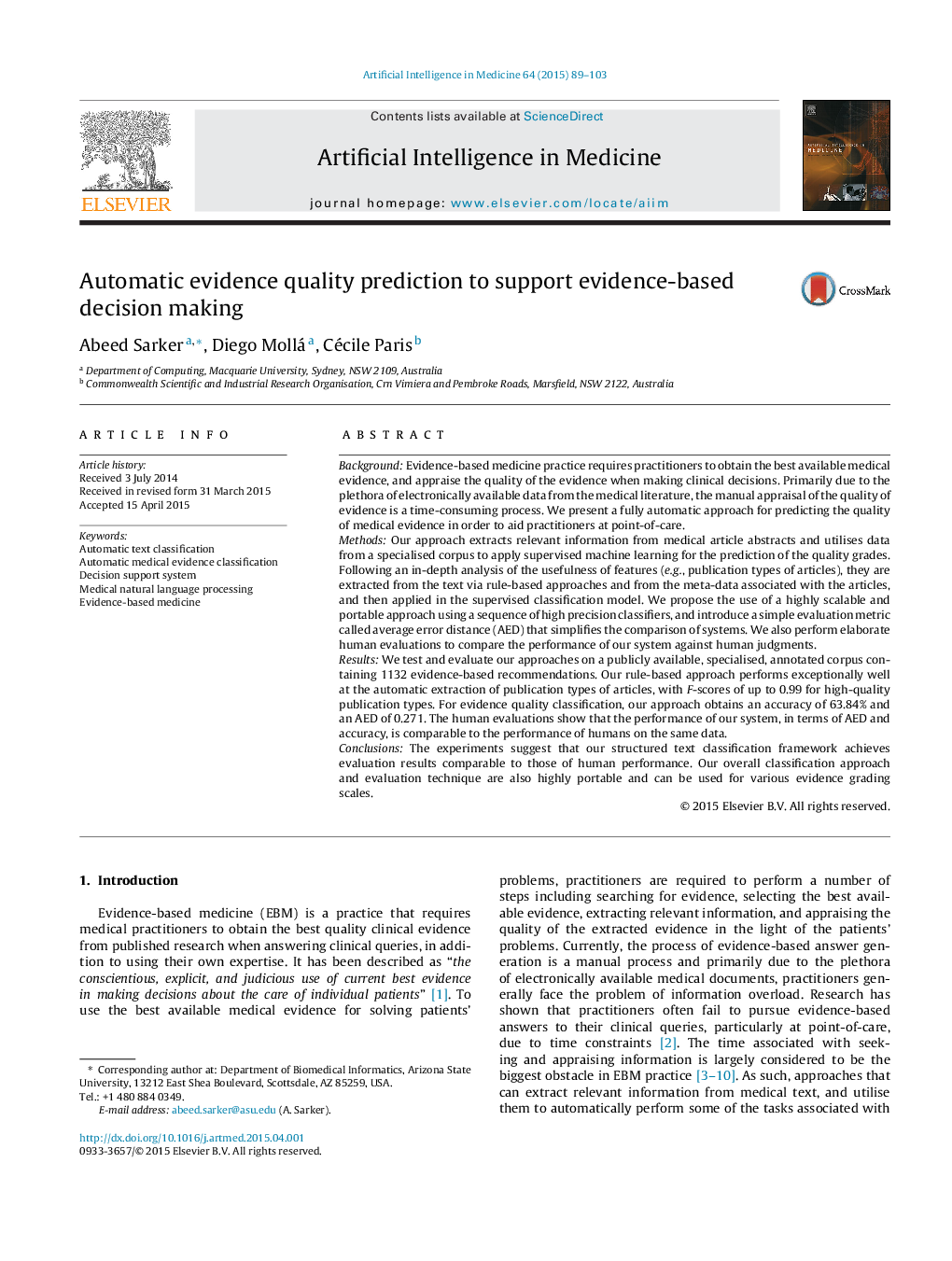| کد مقاله | کد نشریه | سال انتشار | مقاله انگلیسی | نسخه تمام متن |
|---|---|---|---|---|
| 377590 | 658798 | 2015 | 15 صفحه PDF | دانلود رایگان |
• We present a classification model for the automatic quality grading of clinical evidence.
• We propose NLP-based approaches for extraction of informative features from text.
• We present a supervised learning approach using SVM classifiers for evidence grading.
• We show that the performance of our approach is comparable to human performance.
• Our quality grading approach can significantly reduce practitioners’ time needs.
BackgroundEvidence-based medicine practice requires practitioners to obtain the best available medical evidence, and appraise the quality of the evidence when making clinical decisions. Primarily due to the plethora of electronically available data from the medical literature, the manual appraisal of the quality of evidence is a time-consuming process. We present a fully automatic approach for predicting the quality of medical evidence in order to aid practitioners at point-of-care.MethodsOur approach extracts relevant information from medical article abstracts and utilises data from a specialised corpus to apply supervised machine learning for the prediction of the quality grades. Following an in-depth analysis of the usefulness of features (e.g., publication types of articles), they are extracted from the text via rule-based approaches and from the meta-data associated with the articles, and then applied in the supervised classification model. We propose the use of a highly scalable and portable approach using a sequence of high precision classifiers, and introduce a simple evaluation metric called average error distance (AED) that simplifies the comparison of systems. We also perform elaborate human evaluations to compare the performance of our system against human judgments.ResultsWe test and evaluate our approaches on a publicly available, specialised, annotated corpus containing 1132 evidence-based recommendations. Our rule-based approach performs exceptionally well at the automatic extraction of publication types of articles, with F-scores of up to 0.99 for high-quality publication types. For evidence quality classification, our approach obtains an accuracy of 63.84% and an AED of 0.271. The human evaluations show that the performance of our system, in terms of AED and accuracy, is comparable to the performance of humans on the same data.ConclusionsThe experiments suggest that our structured text classification framework achieves evaluation results comparable to those of human performance. Our overall classification approach and evaluation technique are also highly portable and can be used for various evidence grading scales.
Journal: Artificial Intelligence in Medicine - Volume 64, Issue 2, June 2015, Pages 89–103
